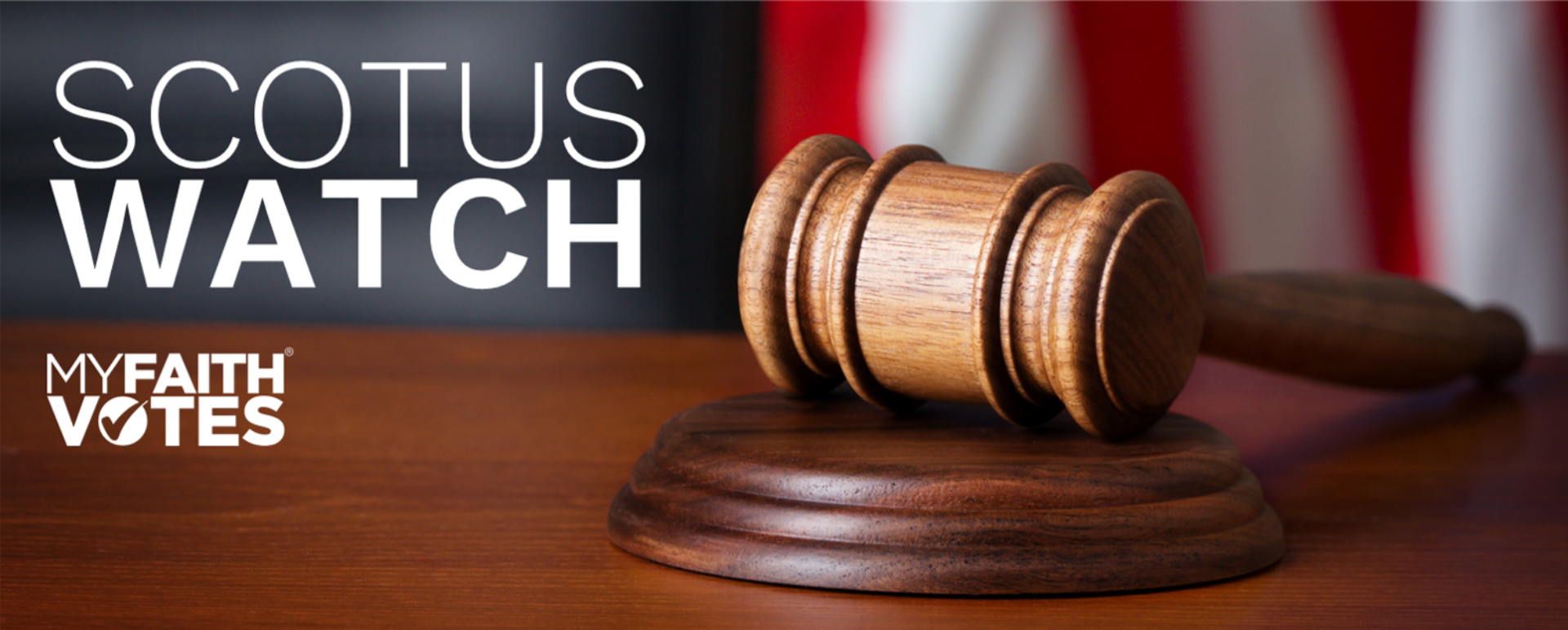
SCOTUS Watch | Apr 3, 2020
In response to COVID-19, the Supreme Court postponed oral arguments on all eleven cases scheduled to be heard in March. The court’s next scheduled argument session, the last of the current term, is scheduled to begin on April 20 and end on April 29. It would be theoretically possible for the court to hear the postponed arguments then, though it would require many of them to be heard in the afternoon.
There appears to be no reason aside from longstanding custom that the court could not decide all of the remaining cases without oral arguments, relying only on written submissions. The court rules on petitions seeking review and emergency applications without hearing oral arguments, and federal appeals courts frequently decide appeals based solely on the parties’ briefs.
The court very rarely postpones oral arguments. The last time it did was in 2012, in response to Hurricane Sandy, and then only for two days.
Here are three recent critical rulings worth noting:
- Wolf v. Innovation Law Lab
- Shuler v. United States
- Kahler v. Kansas
Wolf v. Innovation Law Lab
In a significant decision, the Supreme Court has granted the government’s request for a stay in the Wolf v. Innovation Law Lab Case. This allows the Trump administration's policy, which requires asylum-seekers to remain in Mexico while the United States processes their claim to stay in place. It permits the U.S. Department of Homeland Security to adhere to the current Migrant Protection Protocols. The Supreme Court decision gives the federal government the go-ahead to continue to enforce the policy until the justices grant review and can hear oral argument and issue their final decision on the merits. You can read more about it here.
Shuler v. United States
The issue: Whether the determination of a "serious drug offense" under the Armed Career Criminal Act requires the same categorical approach used in the determination of a "violent felony" under the Act.
The outcome: The court affirmed the 11th Circuit's decision in a unanimous ruling, holding the ACCA's "serious drug offense" definition refers to conduct and does not "call for a comparison to a generic offense." Justice Ginsburg wrote, "The 'serious drug offense' definition requires only that the state offense involve the conduct specified in the federal statute; it does not require that the state offense match certain generic offenses."
In a rare decision from the Court, the Justices issued a unanimous opinion in Schuler v. United States. The case decided the fate of Eddie Shular, a convicted felon, who pleaded guilty to possession of a firearm and possession of a controlled substance. He had six previous drug convictions and therefore was classified as an armed career criminal. However, Shular disagreed with the classification, arguing that his prior convictions were not “serious drug offenses” citing the Armed Career Criminal Act (ACCA). Both the Northern District Court in Florida and the Eleventh Circuit Court ruled against Shular’s objection. Shular then appealed to the U.S. Supreme Court arguing the Eleventh Circuit Court should not have used a categorical approach to interpret “serious drug offenses.” The Supreme Court agreed with the Eleventh Circuit Court’s opinion holding that a serious drug offense does not call for a “comparison to a generic offense.”
Justice Ginsburg wrote, “Section 924(e)(2)(A)(ii)’s text and context leave no doubt that it refers to an offense involving the conduct of 'manufacturing, distributing, or possessing with intent to manufacture or distribute, a controlled substance.' Because those terms describe conduct and do not name offenses, a court applying §924(e)(2)(A)(ii) need not delineate the elements of generic offenses.”
Kahler v. Kansas
The issue: Do the Eighth and Fourteenth Amendments permit a state to abolish the insanity defense?
The outcome: The court affirmed the decision of the Kansas Supreme Court in a 6-3 ruling, holding that due process does not require Kansas to adopt an insanity test that turns on a defendant’s ability to recognize that their crime was morally wrong.
In this case, James Kahler was charged with first-degree murder after shooting and killing his estranged wife, two daughters, and grandmother on the Saturday after Thanksgiving in 2009. His defense counsel argued because of job loss and severe depression, he was unable to form the intent and premeditation necessary to be charged with premeditated capital murder. The state’s forensic psychiatrist arrived at a different conclusion. The psychiatrist argued he did have the capacity to form intent and premeditation, supported by the fact that he planned the shooting and chose not to kill his son, who was also present. Kahler was convicted and sentenced to death, and the ruling was affirmed by the Kansas Supreme Court. At the Supreme Court, Kahler argued that the state of Kansas violated the Constitution, both the Fourteenth Amendment of due process and the Eighth Amendment of prohibiting cruel and unusual punishment because Kansas abolished the insanity defense. The state of Kansas argued that it had changed the insanity defense but not eliminated it and believes that it is at the discretion of the states to decide which affirmative defenses to allow.
Justice Elena Kagan wrote, “This case is about Kansas's treatment of a criminal defendant's insanity claim. In Kansas, a defendant can invoke mental illness to show that he lacked the requisite mens rea (intent) for a crime. He can also raise mental illness after conviction to justify either a reduced term of imprisonment or commitment to a mental health facility. But Kansas, unlike many States, will not wholly exonerate a defendant on the ground that his illness prevented him from recognizing his criminal act as morally wrong.”
To read more of the Supreme Court’s latest opinions, you can do so here.
Scripture instructs us to pray for rulers and all those in authority over us (1 Timothy 2:2). Even though the Justices are not currently hearing cases, we must keep them in our prayers as they consider their rulings on numerous other pending cases.
Below are the names of our nine Supreme Court Justices. We encourage you to pray for each one individually, that they would draw near to the Lord and seek His guidance in each decision.
- Chief Justice John Roberts
- Associate Justice Brett Kavanaugh
- Associate Justice Samuel A. Alito, Jr.
- Associate Justice Stephen Breyer
- Associate Justice Ruth Bader Ginsburg
- Associate Justice Neil Gorsuch
- Associate Justice Elena Kagan
- Associate Justice Sonia Sotomayor
- Associate Justice Clarence Thomas
###
My Faith Votes— is a ministry that motivates, equips, and activates Christians in America to vote in every election, transforming our communities and influencing our nation with biblical truth. An estimated 25 million Christians who are registered to vote, fail to vote in presidential elections. My Faith Votes is on a mission to change this statistic by helping Christians act on their faith and vote in every election. When we pray unceasingly for our nation, think biblically about the issues, and vote consistently in every election the impact of Christians taking action from the local to the state and federal level will be unprecedented.
Website | www.myfaithvotes.org Twitter | @MyFaithVotes Facebook | My Faith Votes

 TV
TV